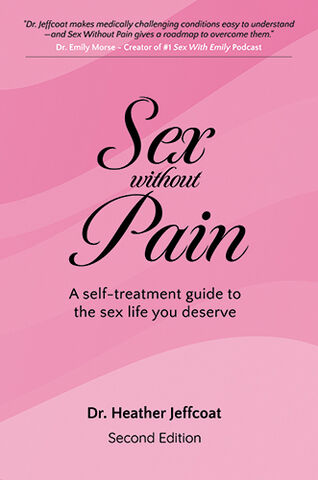A 101 on the credentials, training, and skills of a pelvic floor physical therapist
Two recently published articles, in the International Urogynecology Journal and in Neurourology and Urodynamics talk about the positive outcomes of treatment with trained pelvic floor therapists. Today is a basic rundown of what kinds of credentials, training, and skills a pelvic floor physical therapist has to offer you.
Credentials
Pelvic floor therapists are often physical therapists (PT), a discipline that requires academically rigorous coursework and covers topics from anatomy and kinesiology, to neuroscience, and the evaluation, treatment, and management of common diagnoses. They are also trained in a medical system, and are aware of "red flags" in signs and symptoms that patients may present with. These "red flags" will typically require additional medical referral to rule in or out (i.e. suspected masses, infection, etc).
You will often find a jumble of letters after your pelvic floor therapist’s name. Here is a breakdown of what those letters mean:
PT, MPT, MSPT, or DPT: These letters represent the degree that your pelvic floor physical therapist earned. For many years, physical therapists earned a bachelor's degree prior to becoming licensed. Later, schools transitioned to master's degree programs. The letters MPT or MSPT indicates a master's degree in physical therapy. Most programs today now train therapists for a DPT degree, which stands for doctorate of physical therapy.
Training
In addition to the academics that go into getting a PT degree, pelvic floor physical therapists have advanced training in everything about the pelvis: the bone structure, muscles, nerves, tissues, and organs of the pelvic area. This knowledge extends to the other systems that may affect the pelvis: movement patterns, neurological pain perception patterns, constipation and motility issues, water intake, etc.
With all of this extra training, pelvic floor physical therapists are better able to understand the complexities of your body and your symptoms. With such a holistic and all-encompassing view of everything “pelvis,” pelvic floor therapists can then design a treatment plan that is totally personalized to you and what you need in the moment.
Diagnoses Treated
Pelvic floor dysfunction is complex, with many dovetailing issues contributing to symptoms and pain. pelvic floor physical therapists treat conditions including:
- Urinary and Fecal Incontinence
- Pelvic Organ Prolapse
- Pain with Sex
- Inability to have sex or tolerate tampon use, gynecological exams
- Anorgasmia or dysorgasmia: inability or difficulty with reaching orgasm
- Vaginismus
- Vulvodynia
- Painful Periods, Dysmenorrhea
- Bladder and bowel issues
- Low back and pelvic pain involving the SI joint, groin, abdomen and legs
- Pregnancy & postpartum recovery
Some clients often see a multidisciplinary team to treat their conditions. These teams often include a pelvic floor PT, other specialists including OB/GYN, pain specialists, massage therapists, yoga therapists, dieticians, and others.
Be wary of “Pelvic Floor Therapists” without proper licensure or training
There are some practitioners who claim to do pelvic floor therapy, but their practices may not be science based or medically sound. It is good to make sure that their licensure, credentials, training, and practices are up to par with the care that you deserve.
How to find a pelvic floor physical therapist
The best first step in getting care for your pelvic floor issues is to see your doctor. Pelvic floor therapists work in most major hospitals, large clinics, and in smaller outpatient clinics like Fusion Wellness PT/ Femina PT. In some states a doctor’s referral is required, so be prepared with some articles about pelvic floor therapy to show your doctor, in case they don’t know what it is (a surprising amount of practitioners do not know about pelvic floor therapy).
Resources
American Physical Therapy Association. Appropriate use of designations. Accessed on 10/17/18 at https://www.apta.org/Designations/
Berghmans, B. (2018). Physiotherapy for pelvic pain and female sexual dysfunction: an untapped resource. International Urogynecology Journal, 29(5), 631–638. https://doi.org/10.1007/s00192-017-3536-8
Sun, et al. Comparison of outcomes between postpartum and non-postpartum women with stress urinary incontinence treated with conservative therapy: A prospective cohort study. [Neurourol Urodyn] 2018 Apr; Vol. 37 (4), pp. 1426-1433. Date of Electronic Publication: 2017 Dec 11.
**This information is for educational purposes only and is not intended to replace the advice of your doctor.













